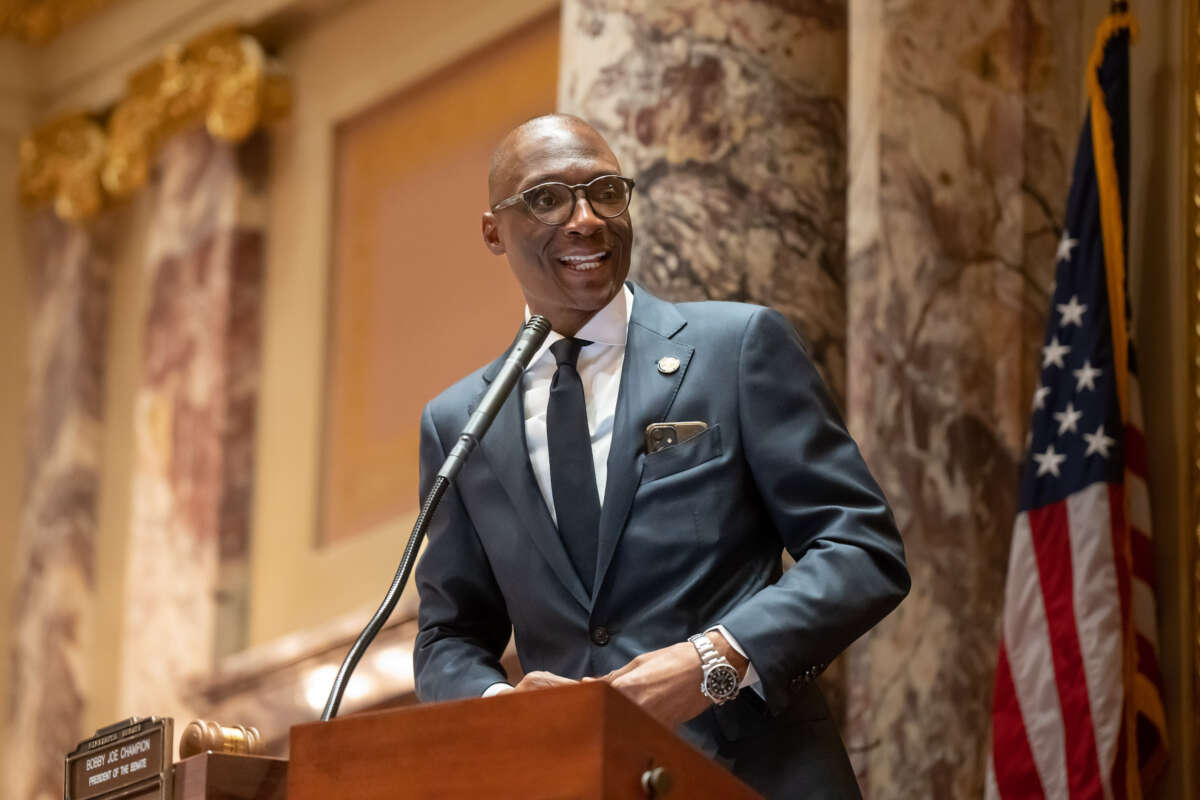The Minnesota legislature has passed a sweeping pro-labor bill including provisions addressing paid sick leave and poor working conditions at Amazon warehouses that labor advocates are hailing as a potential model for pro-worker legislation in other states.
“This bill is a big damn deal,” said state Sen. Erin Murphy (D), in a press conference on the bill.
S.F. 3035 contains a slate of provisions supporting workers across the state and boosting unions. It would guarantee that nearly all Minnesota workers are eligible to earn paid sick leave, with at least six sick days for illness, doctor’s appointments, severe weather or caring for sick family members. This could benefit up to 900,000 workers in the state.
The bill proposes several other provisions that could widely benefit workers across the state. It would render void nearly all noncompete agreements, which are increasingly being used by employers to trap low-wage workers into jobs and have been found to depress wages and worker autonomy. It also explicitly bans captive audience meetings, an extremely common tactic in which union busting employers force workers to attend anti-union propaganda sessions to quash unionization drives.
Other provisions in the bill, which Gov. Tim Walz (D) has pledged to sign, target specific groups of workers long subject to poor labor conditions.
S.F. 3035 unlocks new areas of bargaining for teachers’ unions, allowing teachers to negotiate over things like class sizes and faculty-student ratios. For nursing home workers, it creates a sector-wide board that would be able to set minimum pay and benefits for nursing home workers across the state. And construction workers, who are often misclassified as “independent contractors” rather than employees, win protection against wage theft by contractors and subcontractors.
In a first-ever move, the bill would create statewide ergonomics requirements for facilities like warehouses and meat packing facilities to take steps to avoid worker injuries from repetitive actions and strain. Large meat packing plants will have to take specific steps in this regard.
Amazon is also in the crosshairs of state legislators. The company and others like it will have to be more transparent on their work quotas and ensure that workers aren’t forced to forgo things like bathroom or meal breaks to meet those requirements. And it creates a pathway for workers to bring a civil suit against companies that violate the law.
Many of these provisions have been praised individually for their potential impact. Guaranteed paid sick leave has been a goal of the progressive movement for years, while Minnesota labor advocates hailed the Amazon proposal as the “strongest Amazon warehouse worker protection bill in the nation” in an article in The Nation this week. Meanwhile, the American Economic Liberties Project celebrated the noncompete agreement provision as a “huge and crucially important step” toward protecting workers and consumers across the state.
In all, the Economic Policy Institute wrote on Friday that the bill constitutes a “major win” for workers in the state.
Murphy said that the bill represents an important step toward empowering workers. “We are making powerful advances for people who work for a living all across the state of Minnesota in a variety of industries, providing worker safety, but as important, worker power and worker voice,” said the lawmaker.
Press freedom is under attack
As Trump cracks down on political speech, independent media is increasingly necessary.
Truthout produces reporting you won’t see in the mainstream: journalism from the frontlines of global conflict, interviews with grassroots movement leaders, high-quality legal analysis and more.
Our work is possible thanks to reader support. Help Truthout catalyze change and social justice — make a tax-deductible monthly or one-time donation today.
